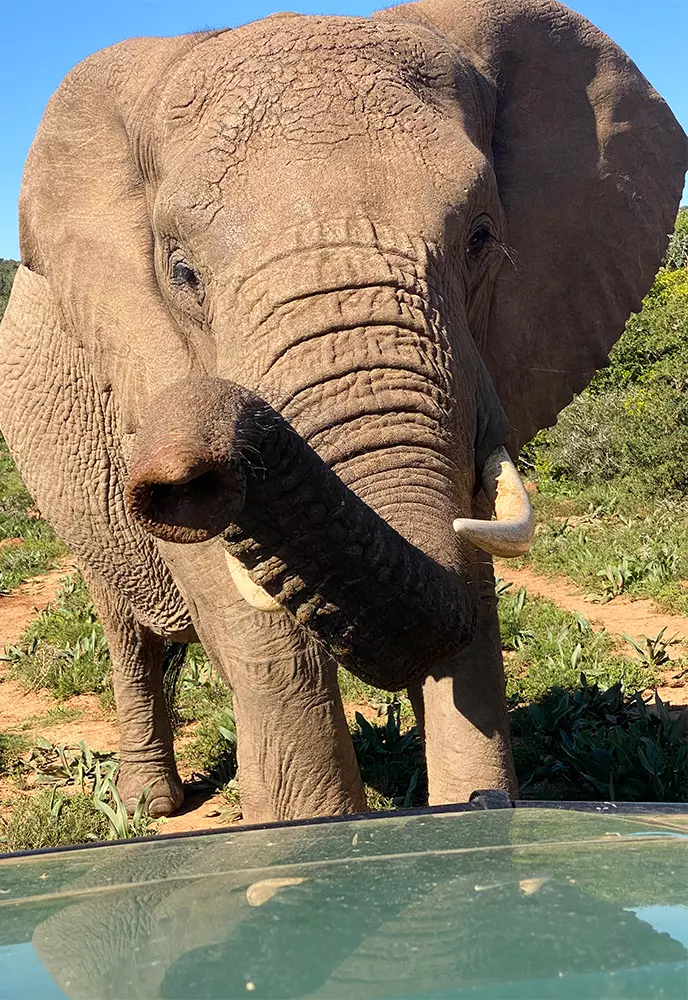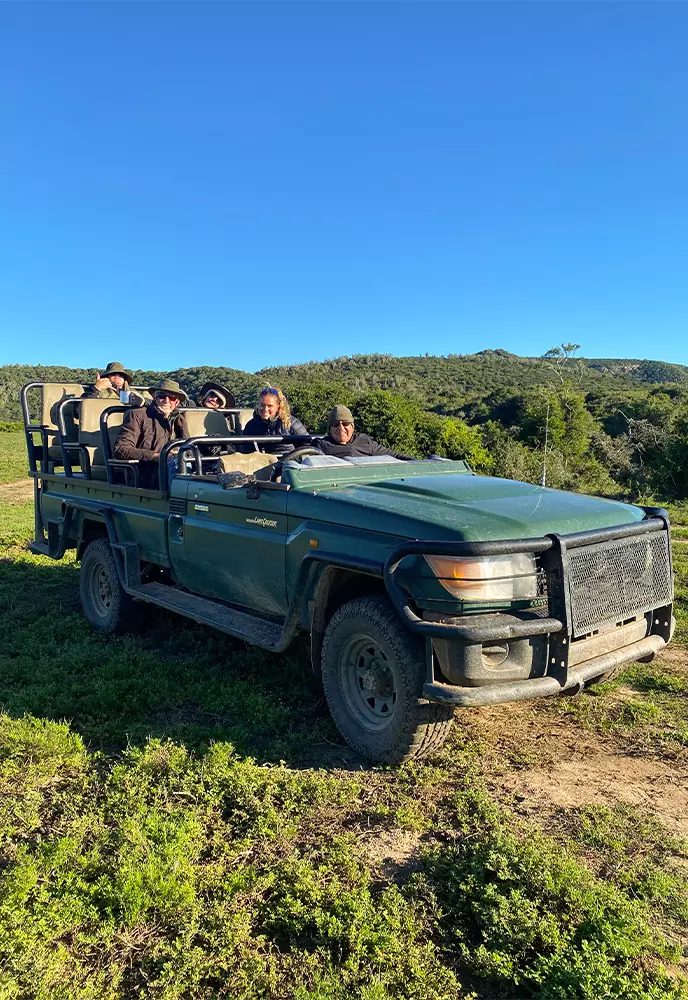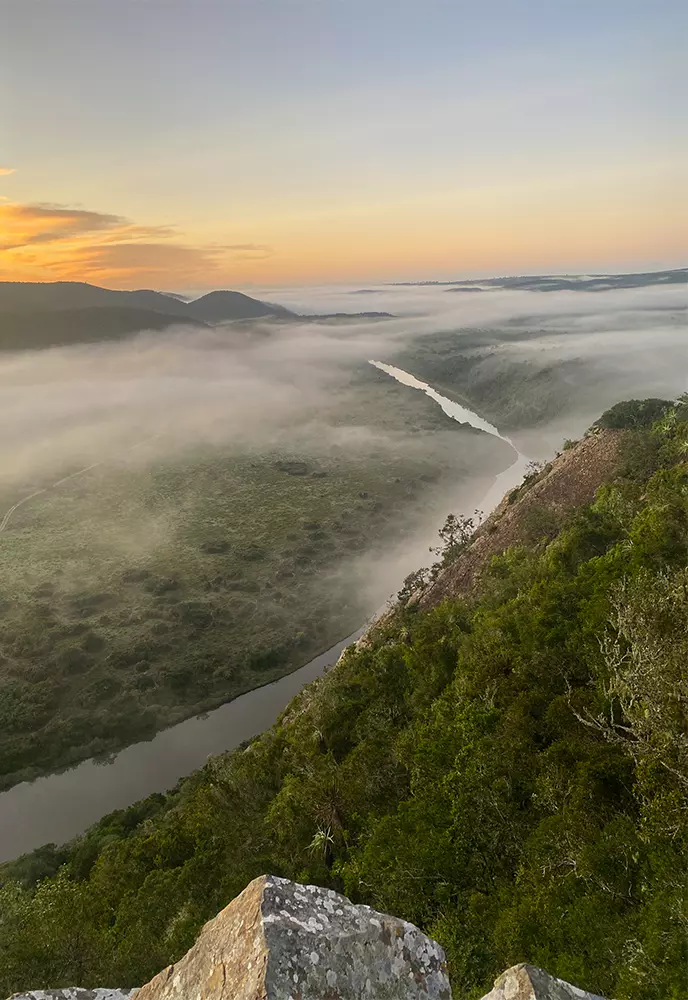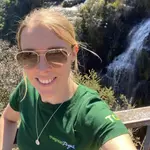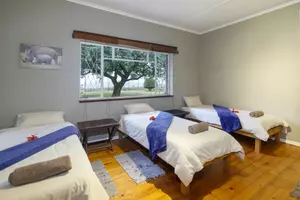

Kariega 'Big 5' Conservation Project
Aid South Africa’s conservation efforts by volunteering with the iconic ‘Big 5’ and local communities surrounding one of the country’s most diverse wildlife reserves.
Speak To A Travel Expert
Activities
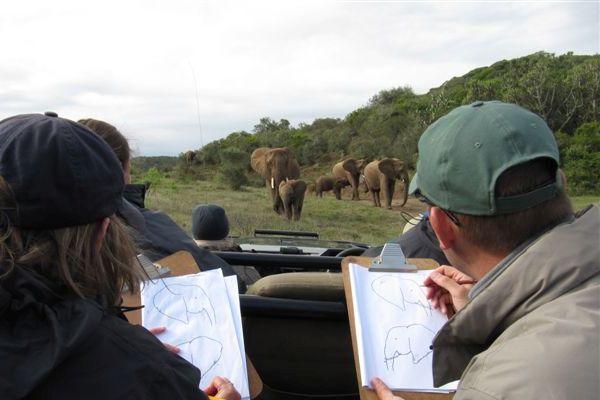
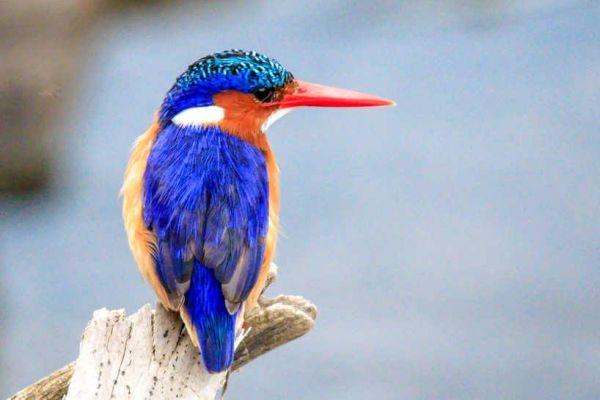
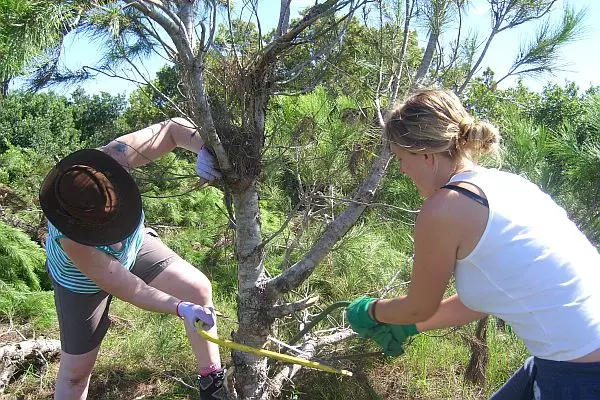

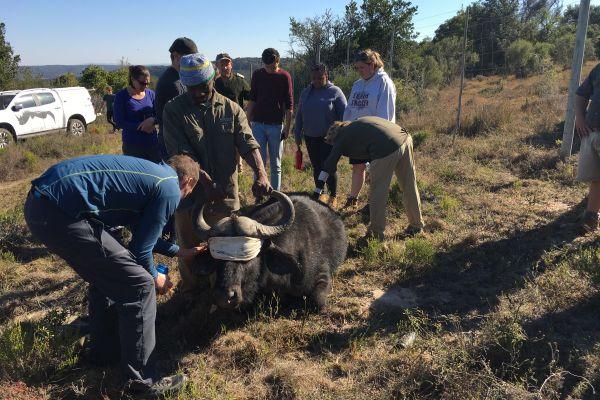
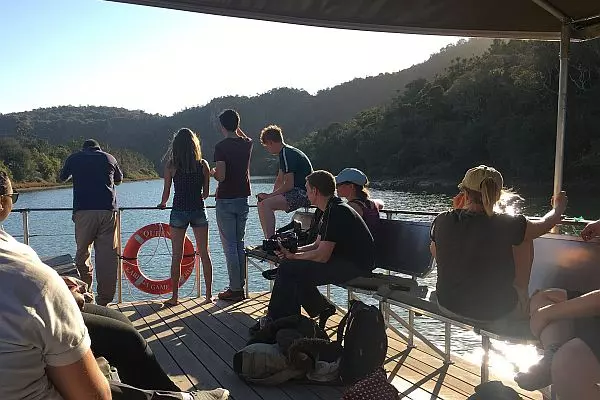
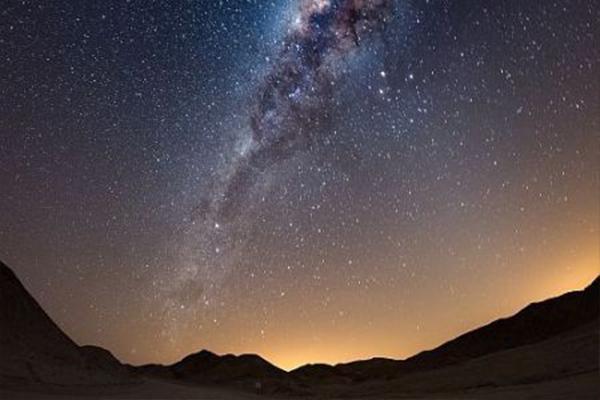
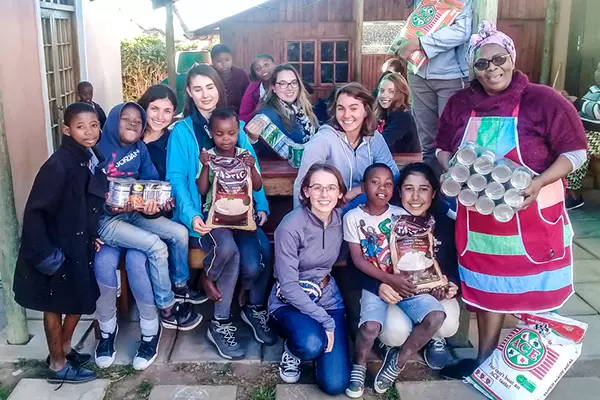
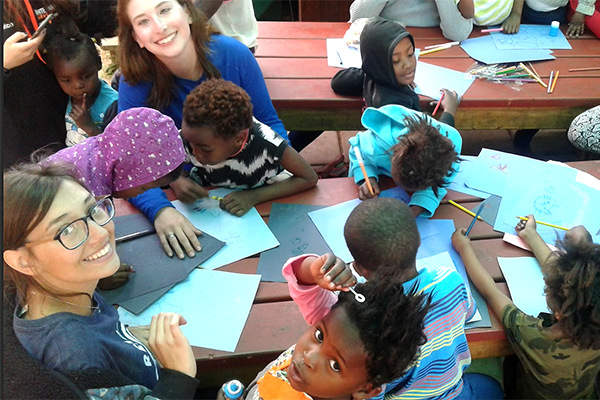
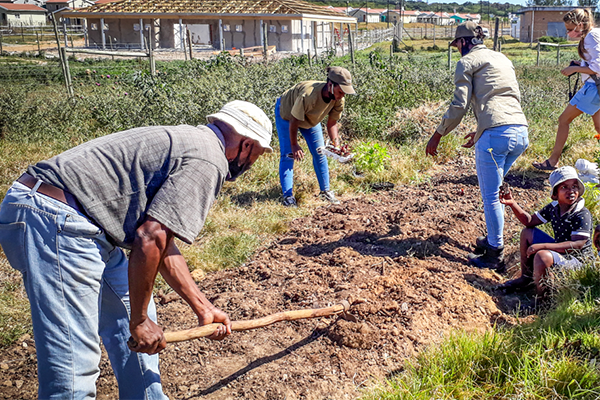
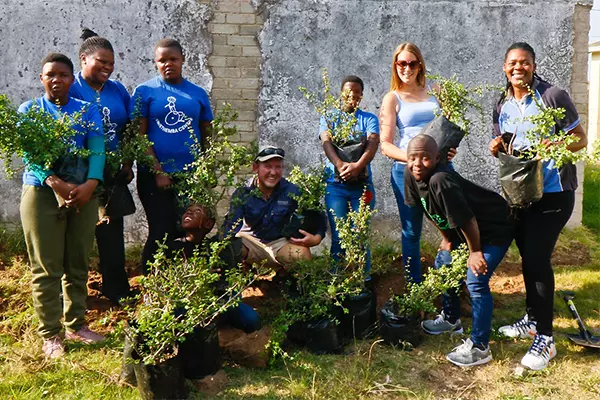
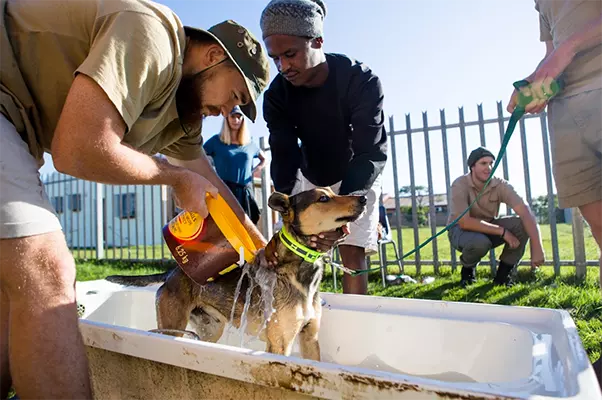
Itinerary
Below is an example of a 2-week itinerary, but it is possible to join for up to 12 weeks. Your stay will be divided between community and conservation work, with weekends at your leisure.
Durations & Prices
Accommodation
Accommodation
While on the project, you'll stay in the Kariega Conservation Centre, where you'll accommodated either within the beautifully presented farmhouse or the annex. The farmhouse has three triple-share bedrooms, one with an ensuite bathroom and two rooms sharing a large bathroom. There are also three triple-share bedrooms in the annexe, with ensuite bathrooms. Bedrooms are shared on a same-sex basis (except for couples who will be accommodated together). The complex has two fully-equipped kitchens, a dining area and spacious living rooms, and an entertainment/lecture room with a pool table. Outside, there's a plunge pool perfect for a refreshing dip and a dedicated braai area for a social night under the stars.
Meals & Beverages
Whilst food is provided for you on this project, volunteers need to prepare their own meals, which you can do either for yourself or as a group. Depending on the weather, you may occasionally get the chance to enjoy a braai, something which is often a highlight of the volunteer experience. Nights spent around the fire having a braai (BBQ) are a big part of South African culture, and should you have the opportunity to indulge in this enjoyable pastime, you will find that it offers a great chance to relax whilst getting to know your fellow volunteers and the team.
Project Details
When is the best time to volunteer?
Nearly all the activities take place year-round except for the community-based projects, as schools are closed in South Africa between mid-December and early January. Therefore, if you are keen to get involved with the community projects, you should avoid volunteering during this time. The only other factor that may impact your preference of when to volunteer is the weather.
Due to its position on the Eastern Cape, the reserve typically enjoys mild, pleasant weather throughout the year with occasional rain (but no distinct wet season). There are 2 seasons which are explained below:
Summer (November - April): During these months, daytime temperatures average 25–30°C (77-86°F), but can occasionally go up to 35°C (95°F) with January and February being the hottest months of the year. At night, it stays relatively warm, averaging 15°C (59°F).
Winter (May – October): This time of year is still very pleasant during the day with temperatures between 20–25°C (68-77°F), however, it can get very cold at night with temperatures falling to 5-10°C (41-50°F).
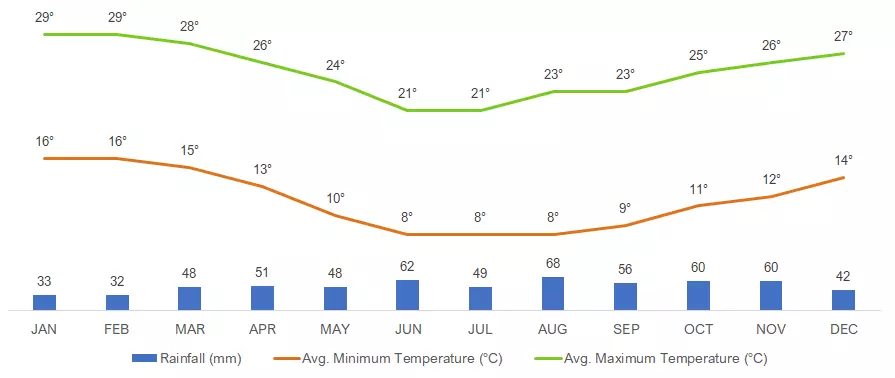
Getting There
You will need to fly into Port Elizabeth Airport (PLZ) on your project start date, and there are several daily flights from Johannesburg and Cape Town. The project site is located approximately 2 hours from Port Elizabeth Airport by car, and airport transfers can be arranged, but please note that this will come at an additional cost.
If you do require a transfer, please ensure that you arrive into Port Elizabeth by 3:05pm, to ensure you have time to collect your luggage and pass through airport security before your transfer leaves. A one-way transfer costs R900 (approximately $68) for one person, or R450 (approximately $34) per person for two or more people sharing a vehicle.
Transfers back to Port Elizabeth Airport on your final day arrive at 11am so you must book a flight that departs after 12pm.
Visa Requirements
Citizens of most countries, including the UK, USA, Canada, Australia and most of those within the EU, do not need to obtain a visa to enter South Africa and are granted entry for up to 90 days upon arrival. You will, however, need at least 2 blank pages in your passport for the immigration officials to use and your passport must be valid for a period of at least 6 months from your date of entry.
If you are unsure of your individual visa requirements, we recommend speaking to your local South African embassy at least 2 months prior to travel.
Fitness & Skills
We recommend all volunteers have a moderate level of fitness, as the days are busy and you will be involved in a variety of activities! Whilst no specific skills are required, we ask that everyone arrives with a willingness to get involved and a respect for the wildlife and the committed project staff with whom you will be working.
Vaccinations
There are no specific vaccinations required to join this project; therefore, we recommend consulting your GP/doctor or a travel clinic and following their advice on vaccinations for travel. You can also find helpful advice and information on the Travel Health Pro website.
Videos
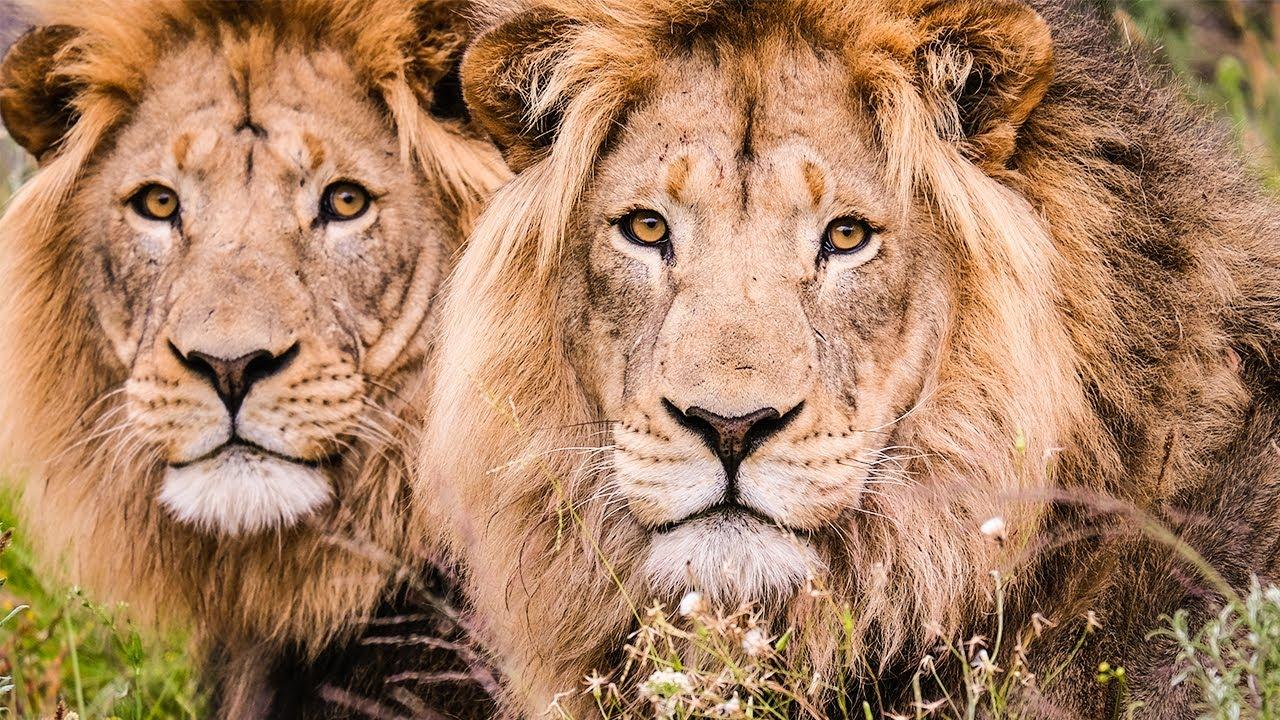
Discover The Kariega 'Big 5' Conservation Project
See what you could get up to as a volunteer at the Kariega Game Reserve, from 'Big 5' game drives and reserve management to community initiatives and spending time with the anti-poaching unit. Kariega offers an incredible African conservation experience to all!
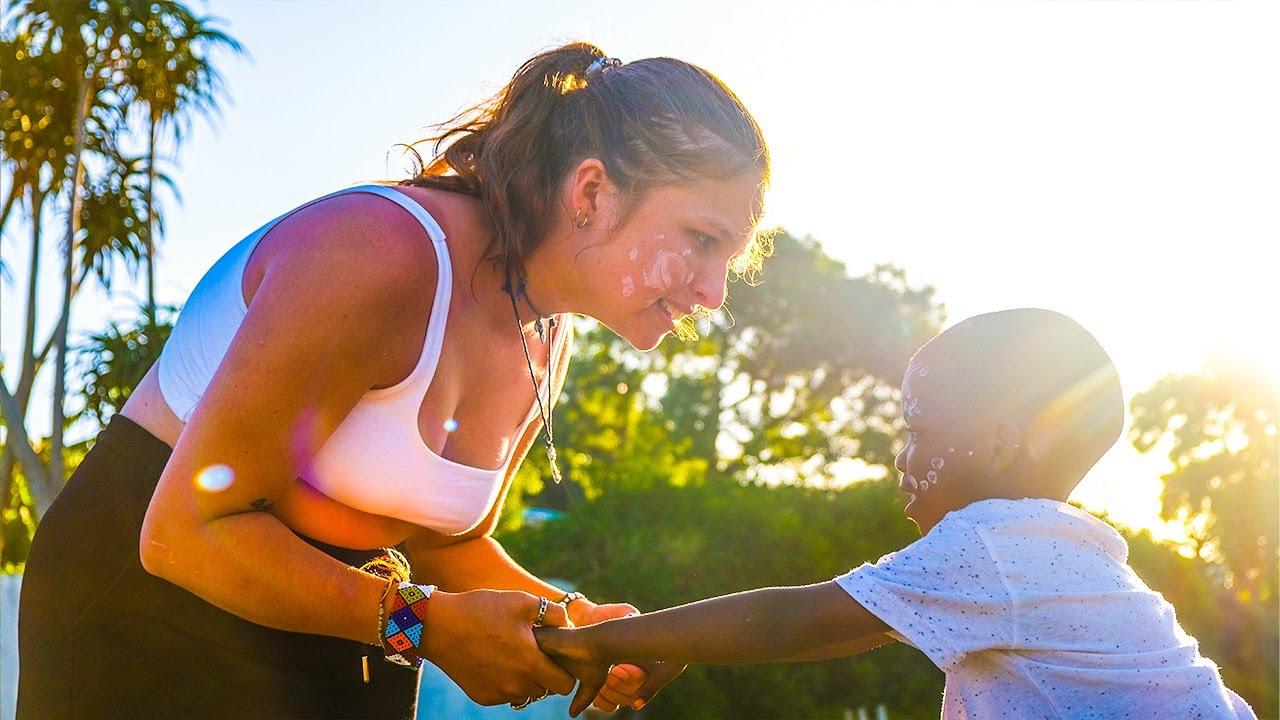
Volunteers Discuss Their Time at Kariega
Lou, Garnet and Jakob share their experience of volunteering at the Kariega Game Reserve as they embark on game drives, a river cruise, and work on local community initiatives.
Gallery
News & Stories

Supporting South Africa’s Lions
UPDATE | Feb 2026
Recent volunteers were lucky enough to witness a truly special lion translocation. After a full health check, the lion was carefully transported and flown to KwaZulu-Natal to begin a new chapter and establish a new pride. Kariega plays a vital role in supporting lion meta-populations across South Africa, making it an unforgettable conservation moment to see firsthand!

A Roaring Good Deed: Volunteers Join a Lion Procedure
UPDATE | Dec 2025
Recently, volunteers helped the wildlife and vet teams during a lion procedure! From checking vitals to lending a hand in safely moving this big, sleepy cat, it was an experience they won’t forget anytime soon. Moments like these don’t just offer a front-row seat to wildlife care; they also give volunteers a glimpse into how a metapopulation approach helps keep South Africa’s lions thriving!

This Week with the Volunteers!
UPDATE | Nov 2025
Volunteers have been busy lately with recent activities, including tracking wildlife using radio telemetry, kayaking adventures on the river, refreshing wild swims, and a fun-filled braai night by the fire.
Reviews
Kariega had a good balance between wildlife and community activities and their interrelatedness, 60% wildlife and 40% community. Mali, the community coordinator was recognized, known and well thought of by most people. The tasks included painting a school gym in colors so that the children would be attracted to play there, helping to install a gym at another school, treating dogs and cats for ticks and worms, taking food to a soup kitchen, planting in a school garden and saying hello to schoolchildren. We spent the whole day on a number of occasions with Jaco our extremely knowledgably wildlife coordinator driving through the reserve, in some cases starting at 6am to catch the sunrise across vistas that took your breath away. Tasks included tracking and monitoring rhinos, elephants, lions and birdlife across the 11,000 hectare reserve !! On one occasion, we had to track a rhino and assist a team, of vets and rangers to anesthetize Colin, a white rhino that was a dominant male to change it's tracking collar. Every day was different and what was special was that we were able to observe the animals, in some cases up to an hour eg. a herd of elephants hanging... Kariega had a good balance between wildlife and community activities and their interrelatedness, 60% wildlife and 40% community. Mali, the community coordinator was recognized, known and well thought of by most people. The tasks included painting a school gym in colors so that the children would be attracted to play there, helping to install a gym at another school, treating dogs and cats for ticks and worms, taking food to a soup kitchen, planting in a school garden and saying hello to schoolchildren. We spent the whole day on a number of occasions with Jaco our extremely knowledgably wildlife coordinator driving through the reserve, in some cases starting at 6am to catch the sunrise across vistas that took your breath away. Tasks included tracking and monitoring rhinos, elephants, lions and birdlife across the 11,000 hectare reserve !! On one occasion, we had to track a rhino and assist a team, of vets and rangers to anesthetize Colin, a white rhino that was a dominant male to change it's tracking collar. Every day was different and what was special was that we were able to observe the animals, in some cases up to an hour eg. a herd of elephants hanging out in a pond. We also assisted to removing invasive plants and removing an old unused enclosure to return the area to it's natural condition. We met some great people as fellow volunteers and the staff at the project were always friendly and helpful. This is one project we would go back to. (Show More)
I had the best time at the Kariega ‘Big 5’ Conservation Project. Jaco was such a wonderful host. The place was absolutely magnificent. From start to finish was everything I ever imagined. Thank you
This program literally changed my life, I’m 56, it was a huge deal heading all that way to live, and work with strangers, every second was amazing, and I’m the happy go lucky person again, the one that I used to be, thank you.
What's Included
- Accommodation
- Three meals per day
- Juice, tea and coffee
- Wi-Fi at the project site
- A laundry service
- A conservation donation to the project
What's Not Included
- Flights
- Travel insurance
- Airport transfers to and from the project site (available at an additional cost)
- Alcoholic beverages, personal snacks etc.

































